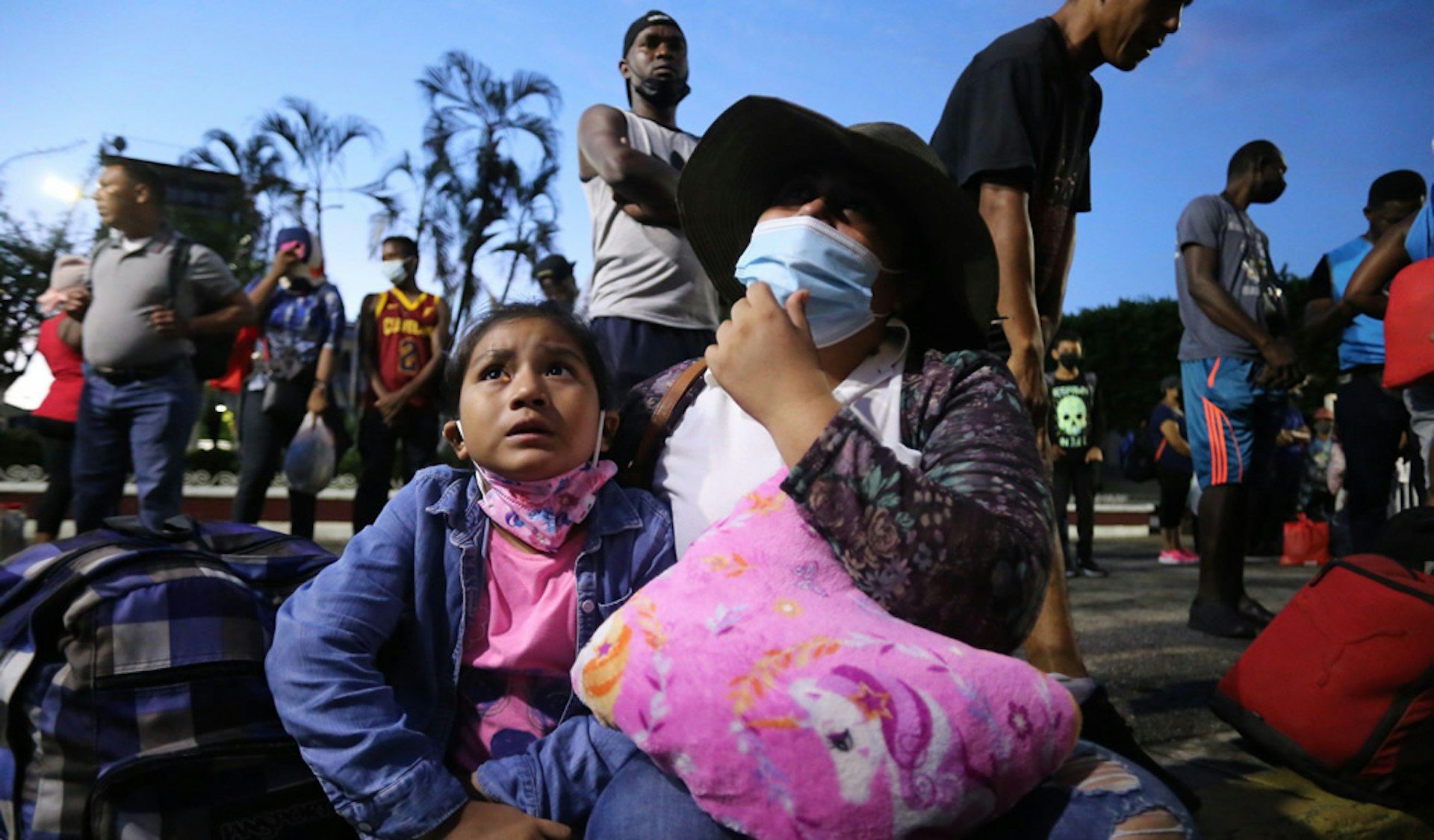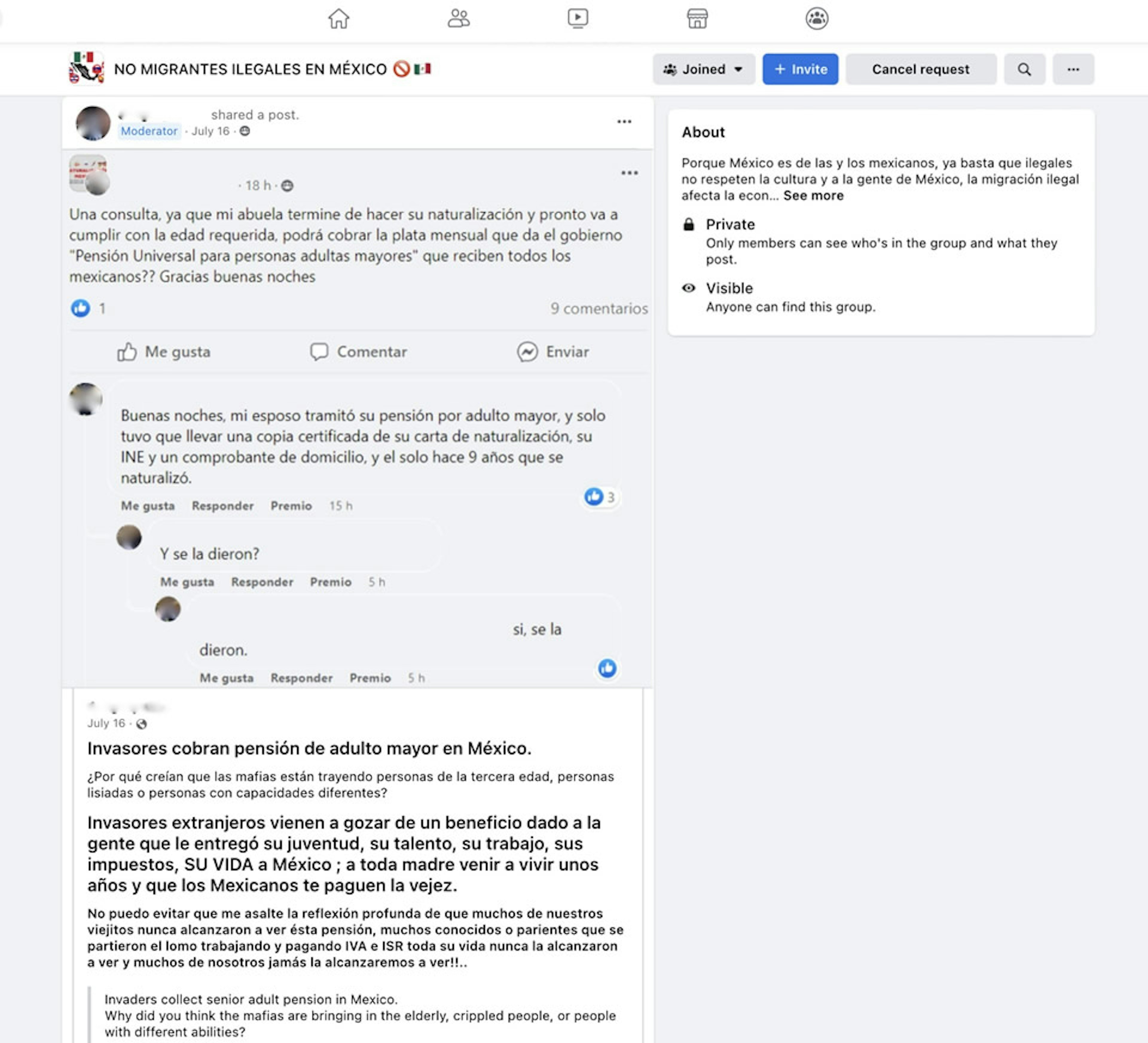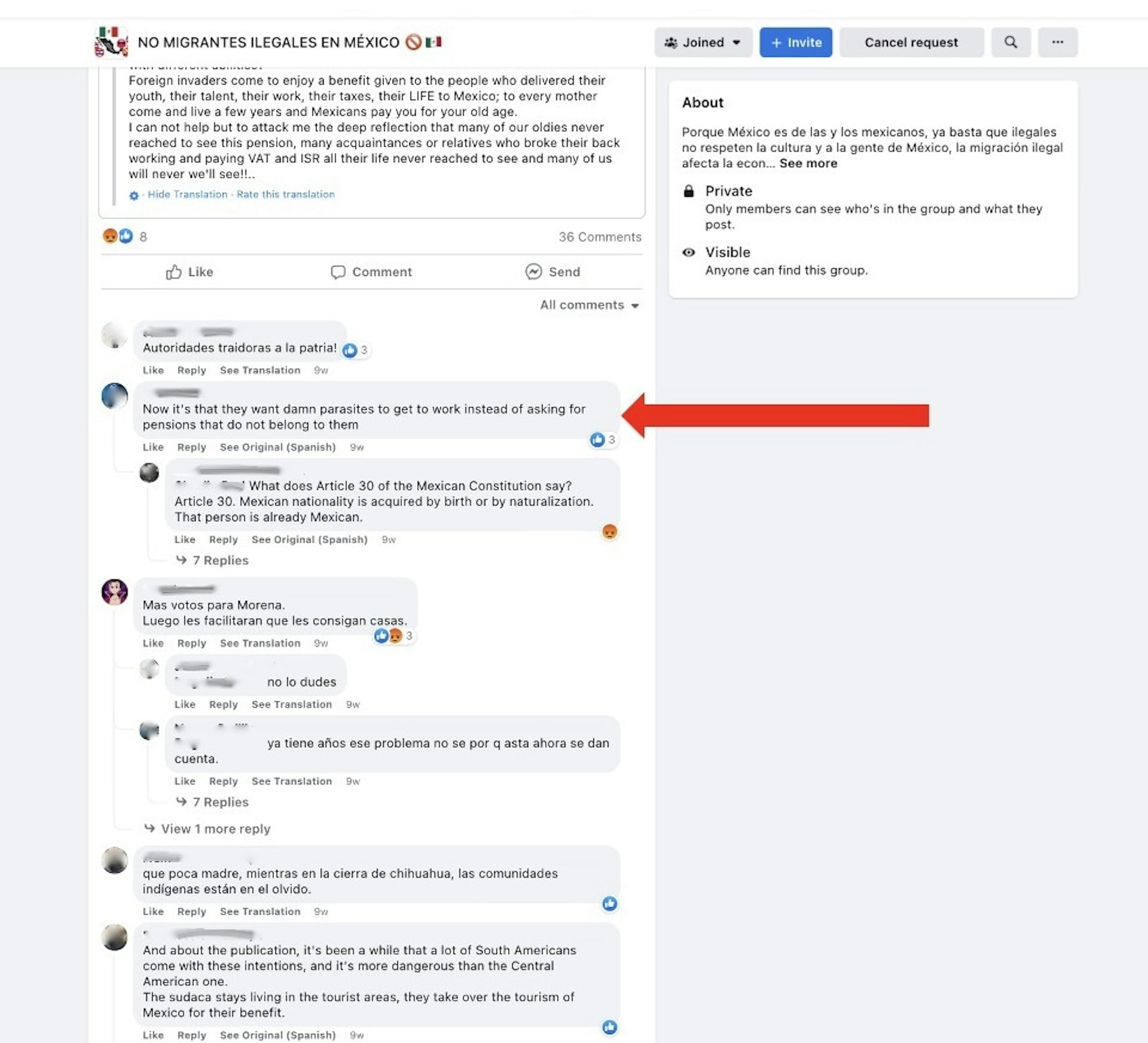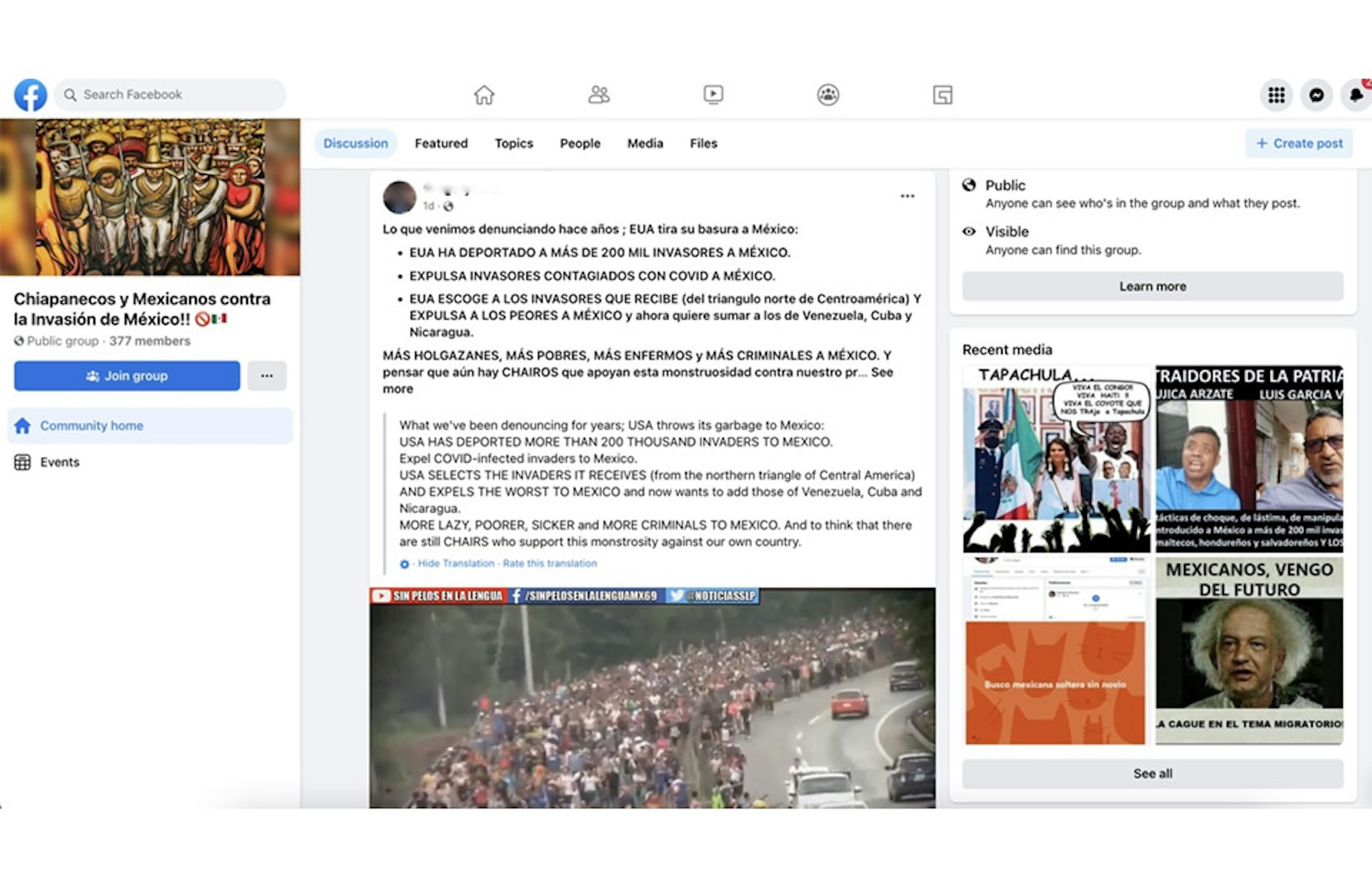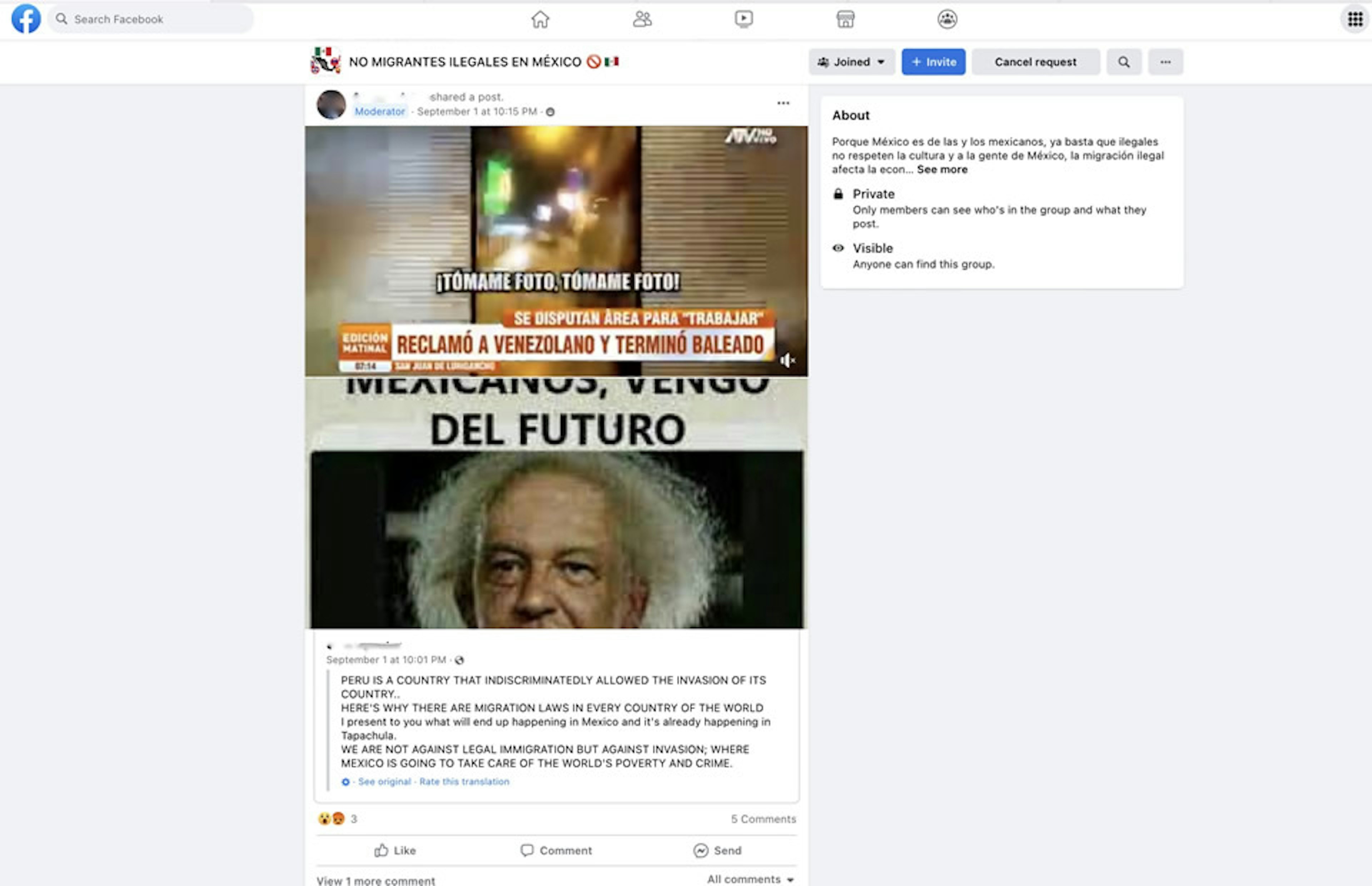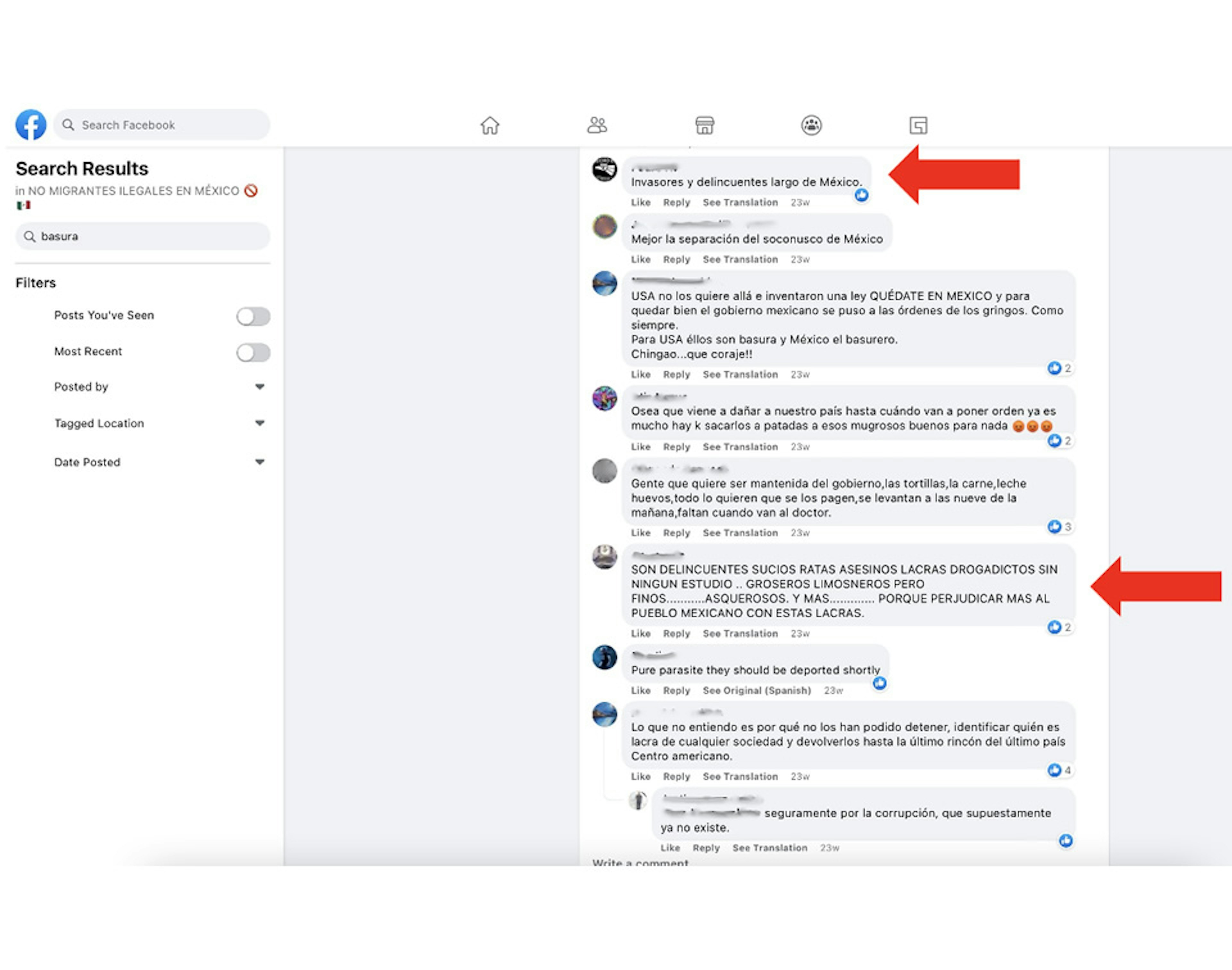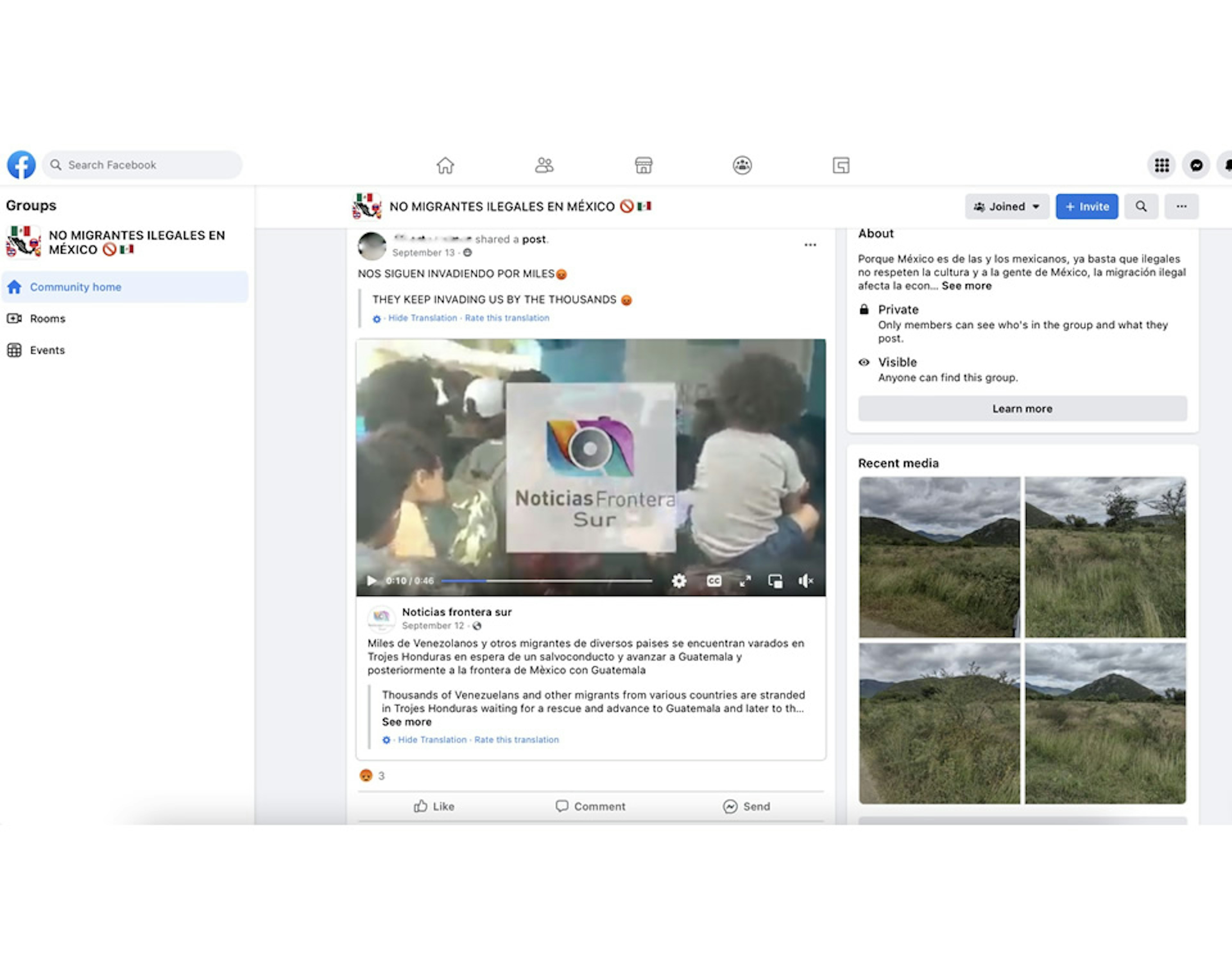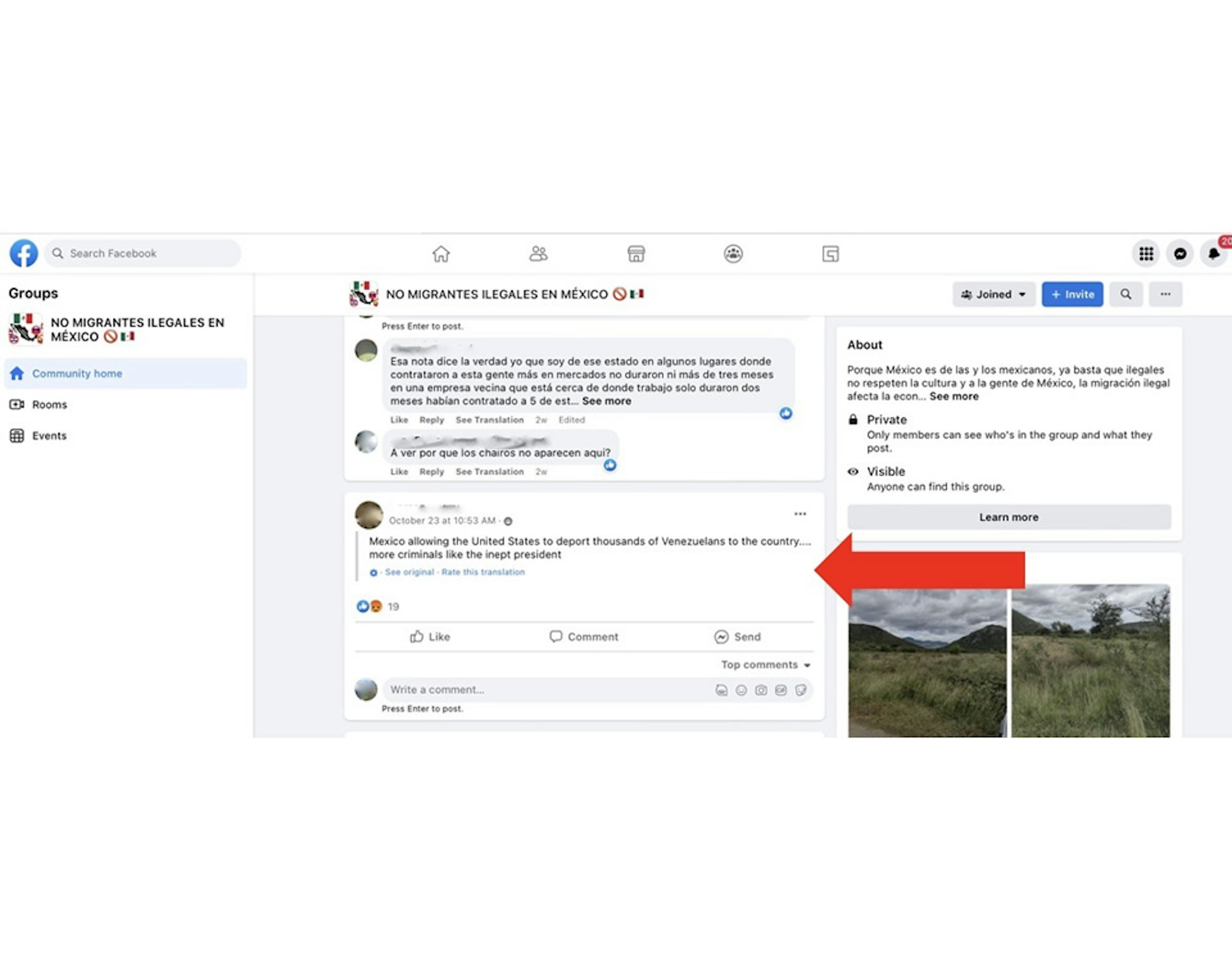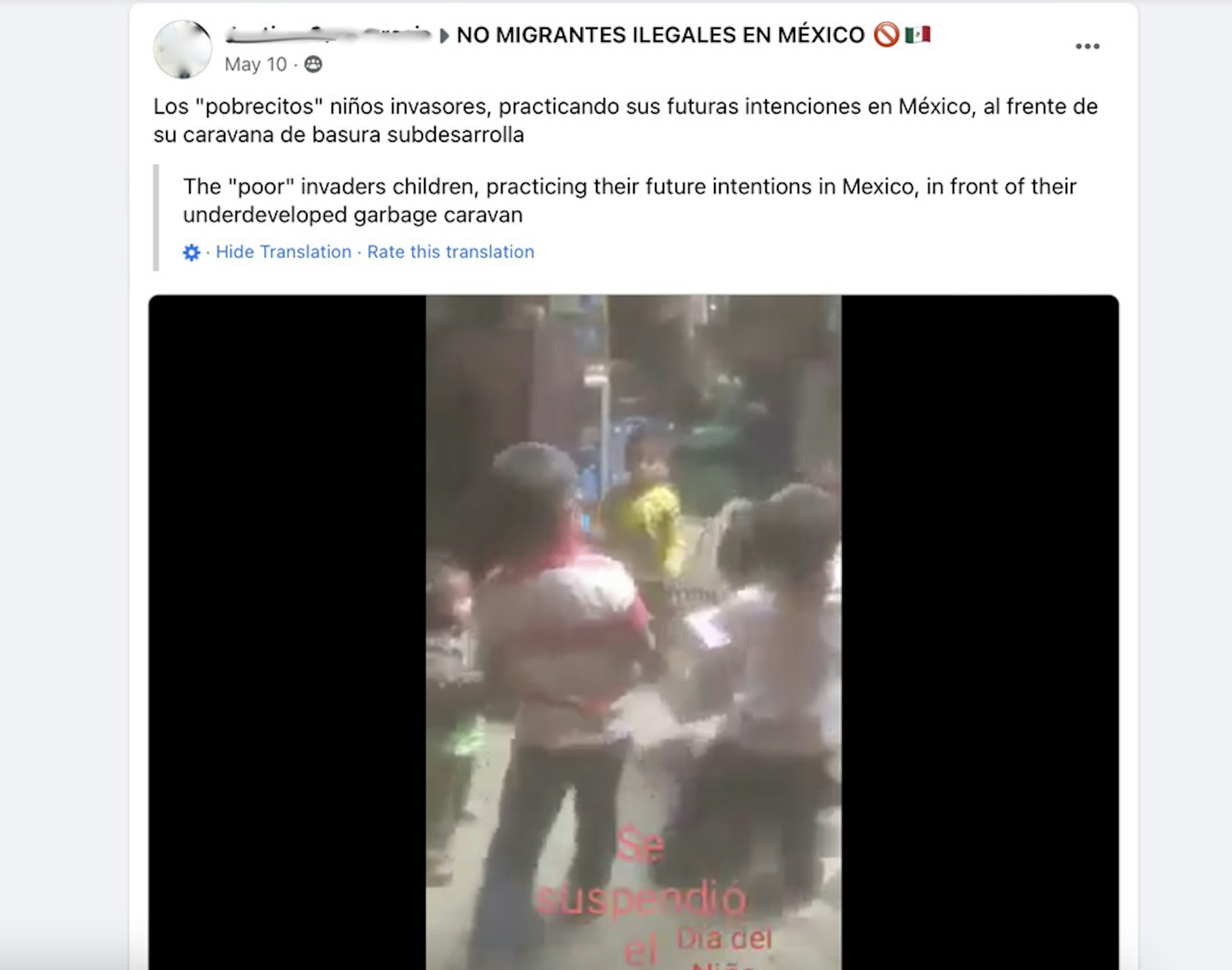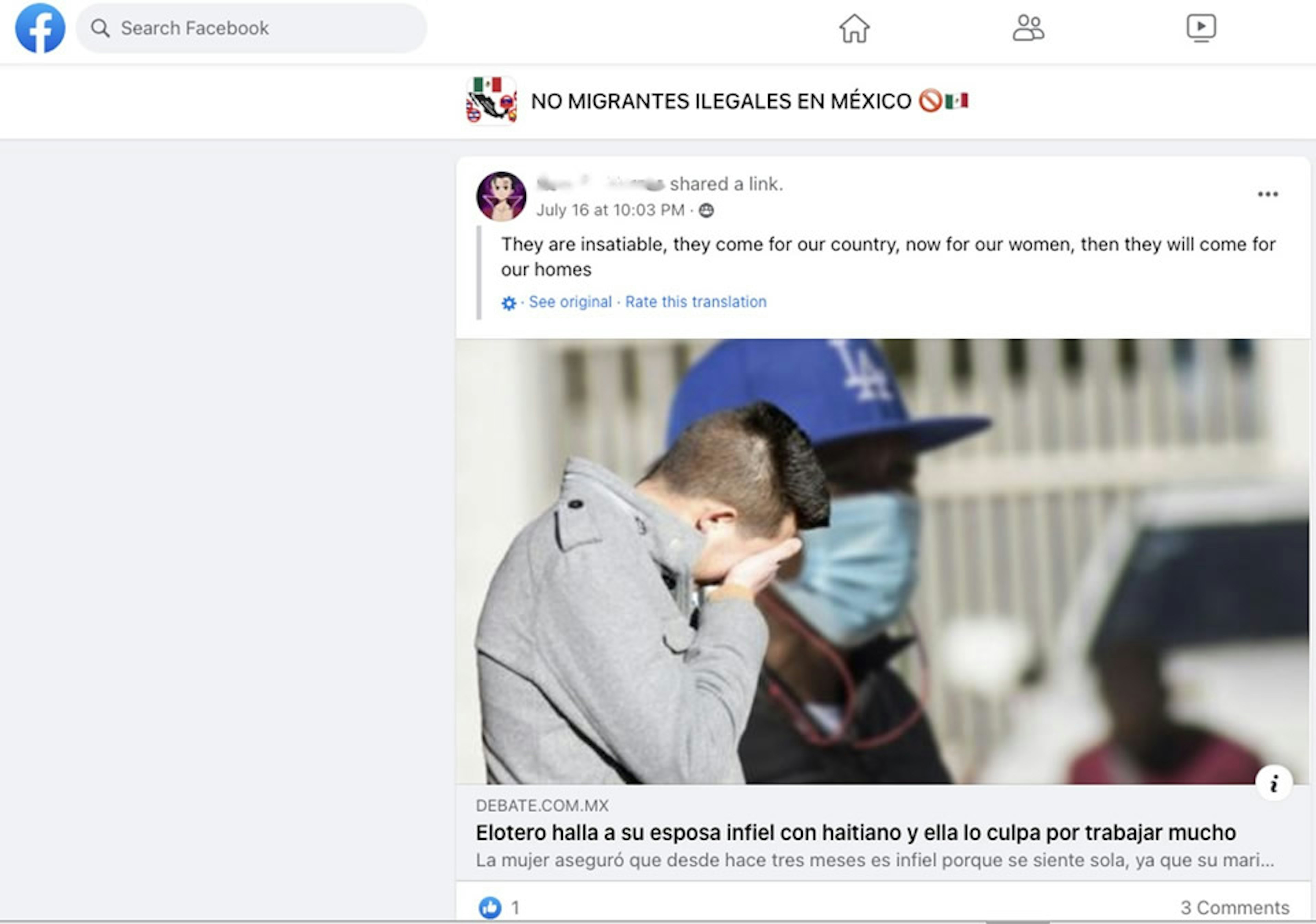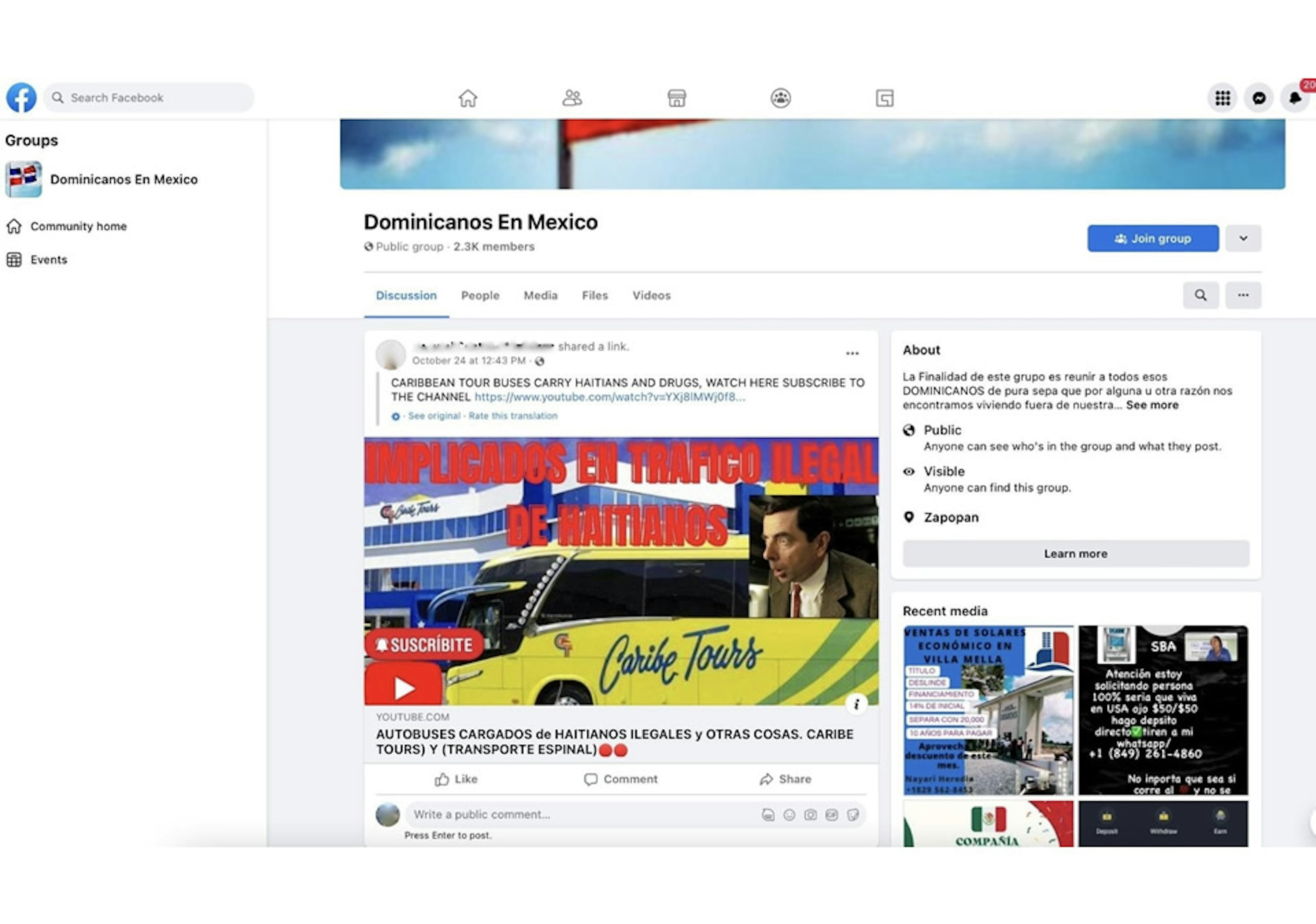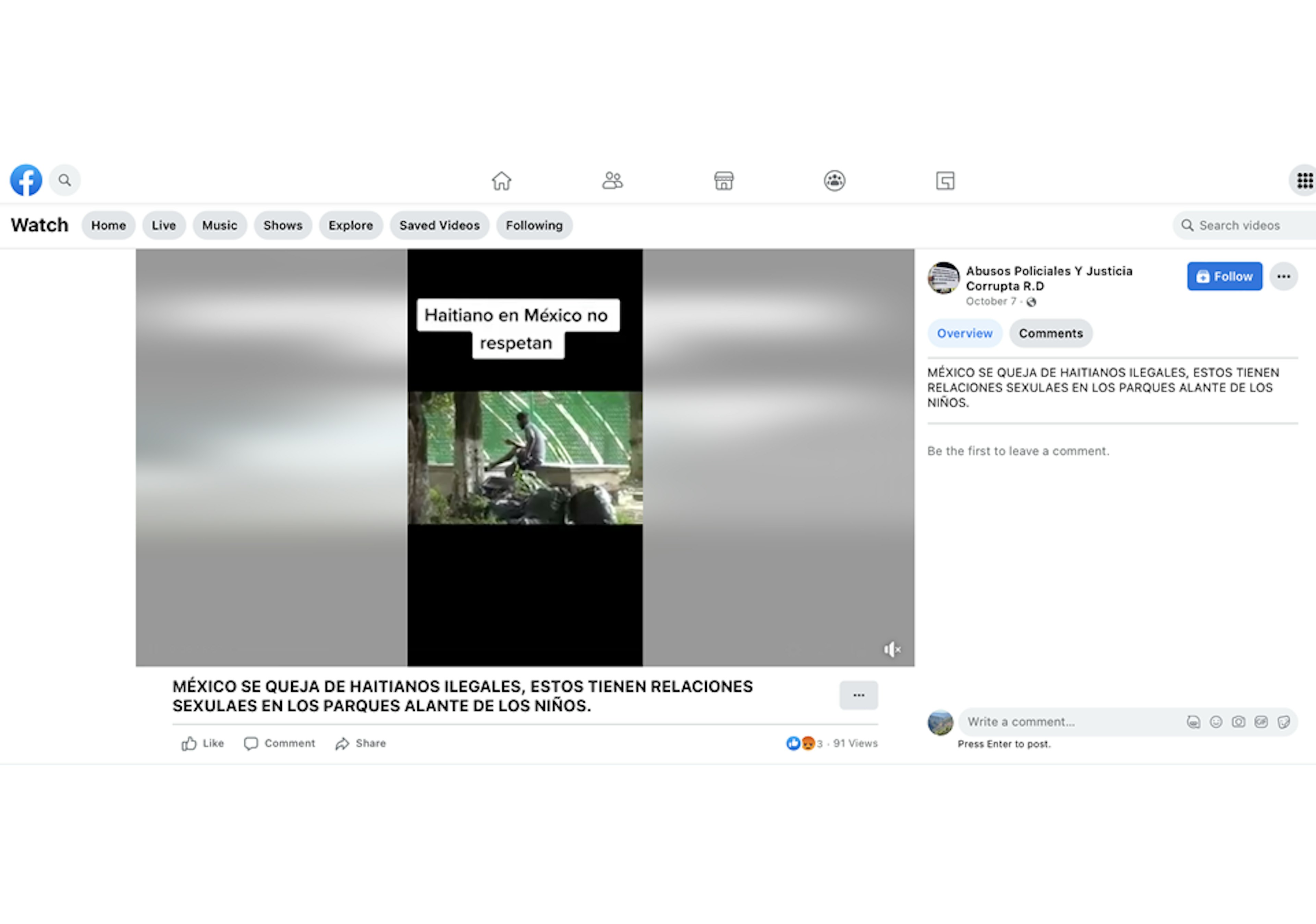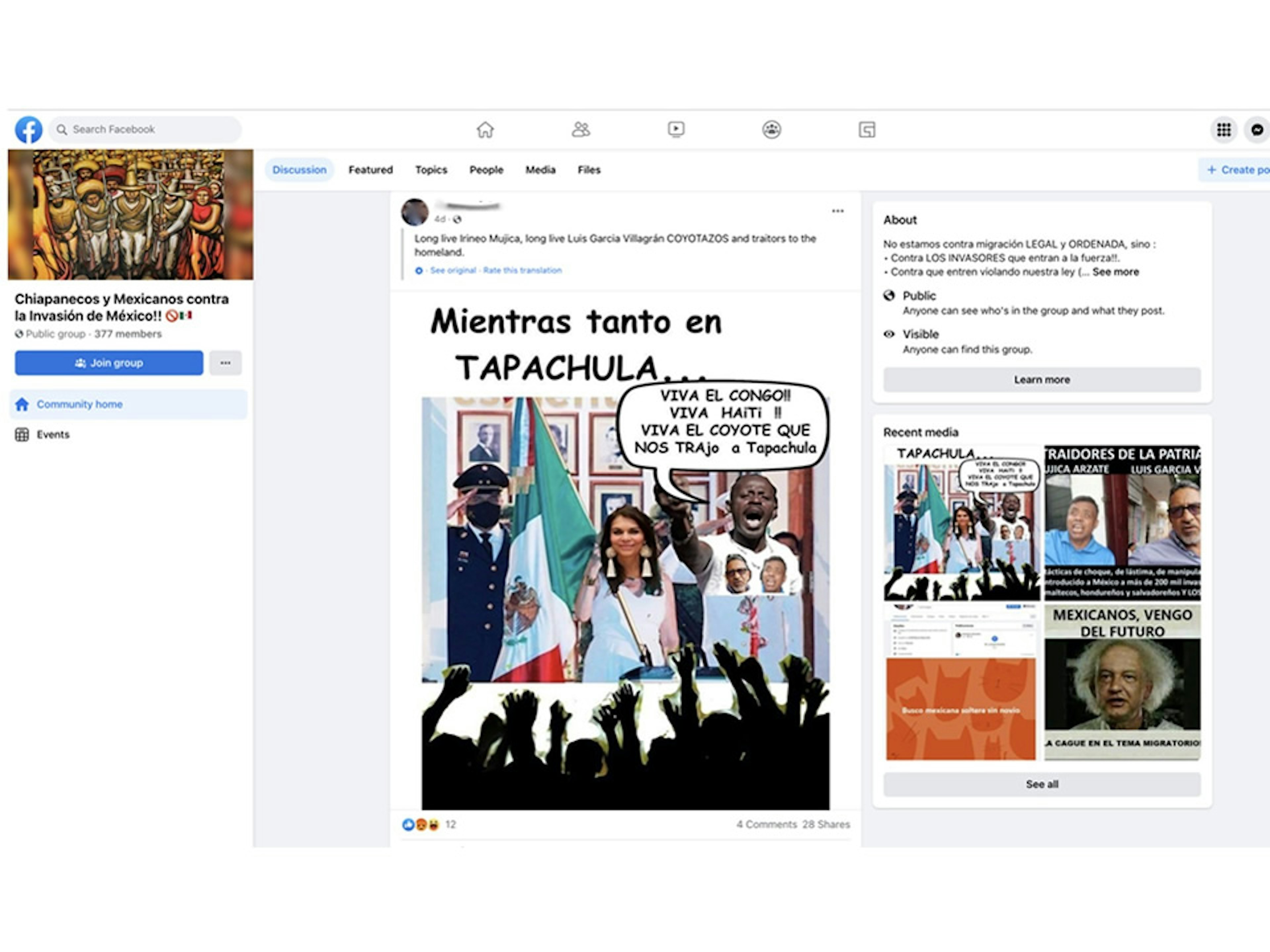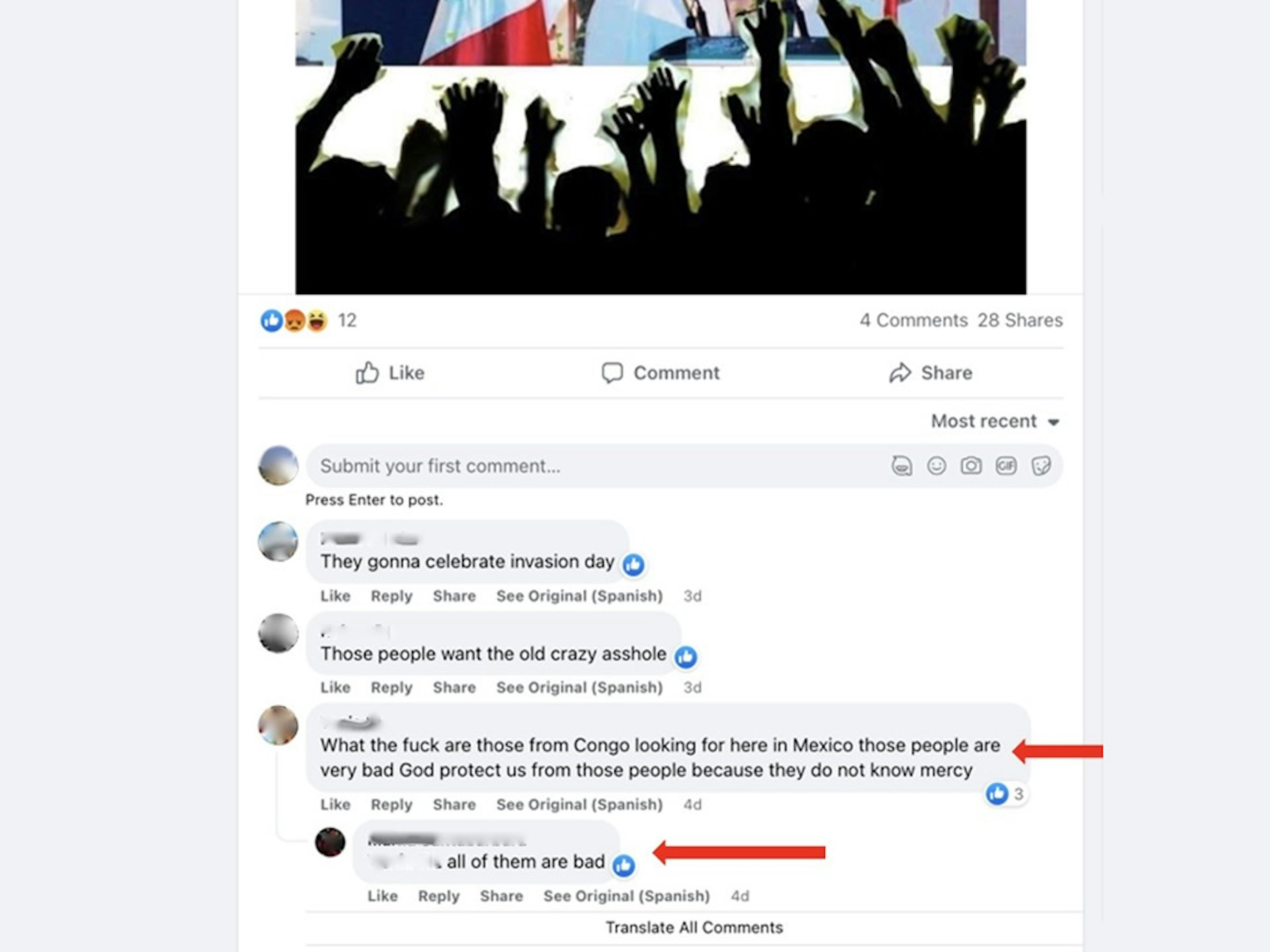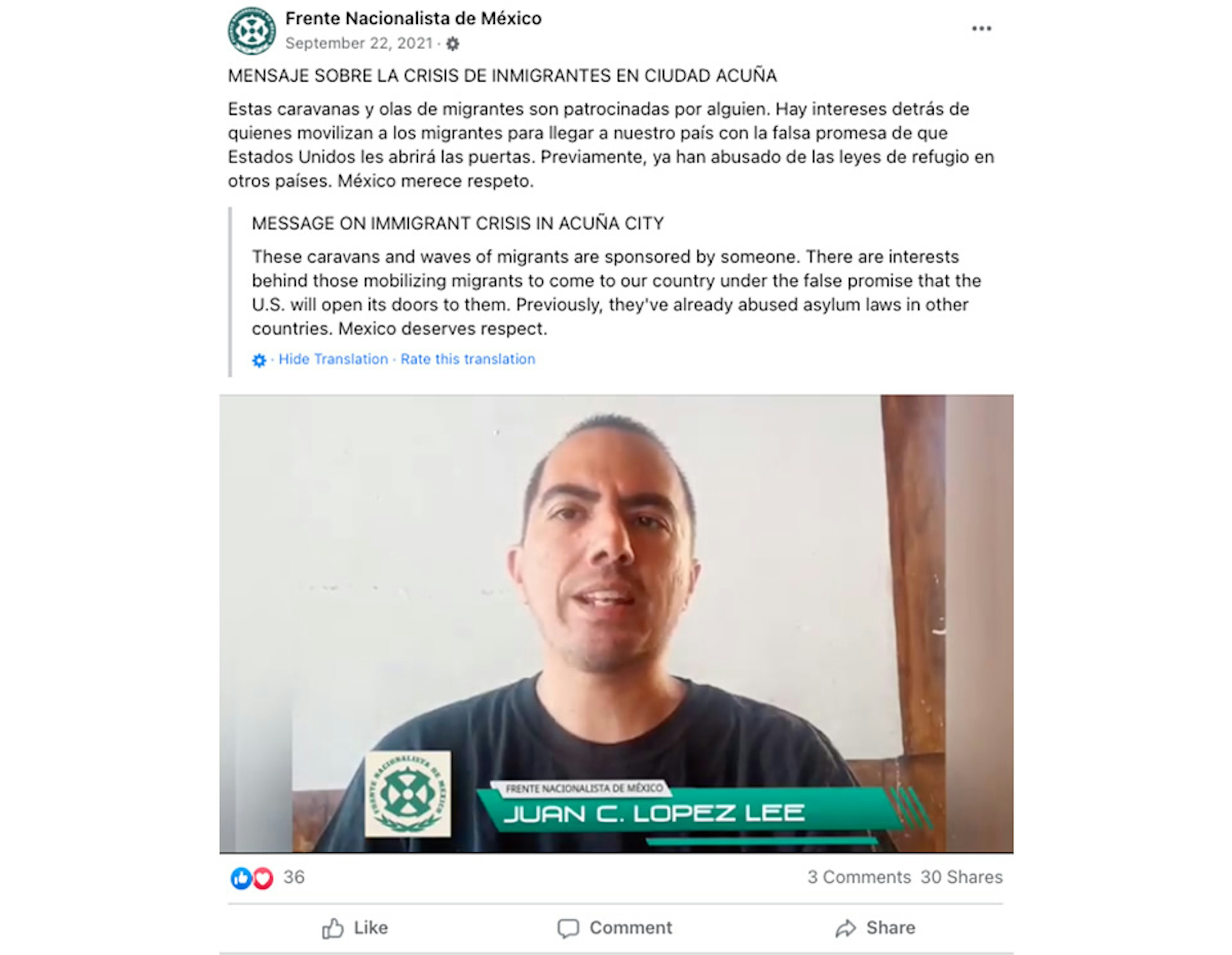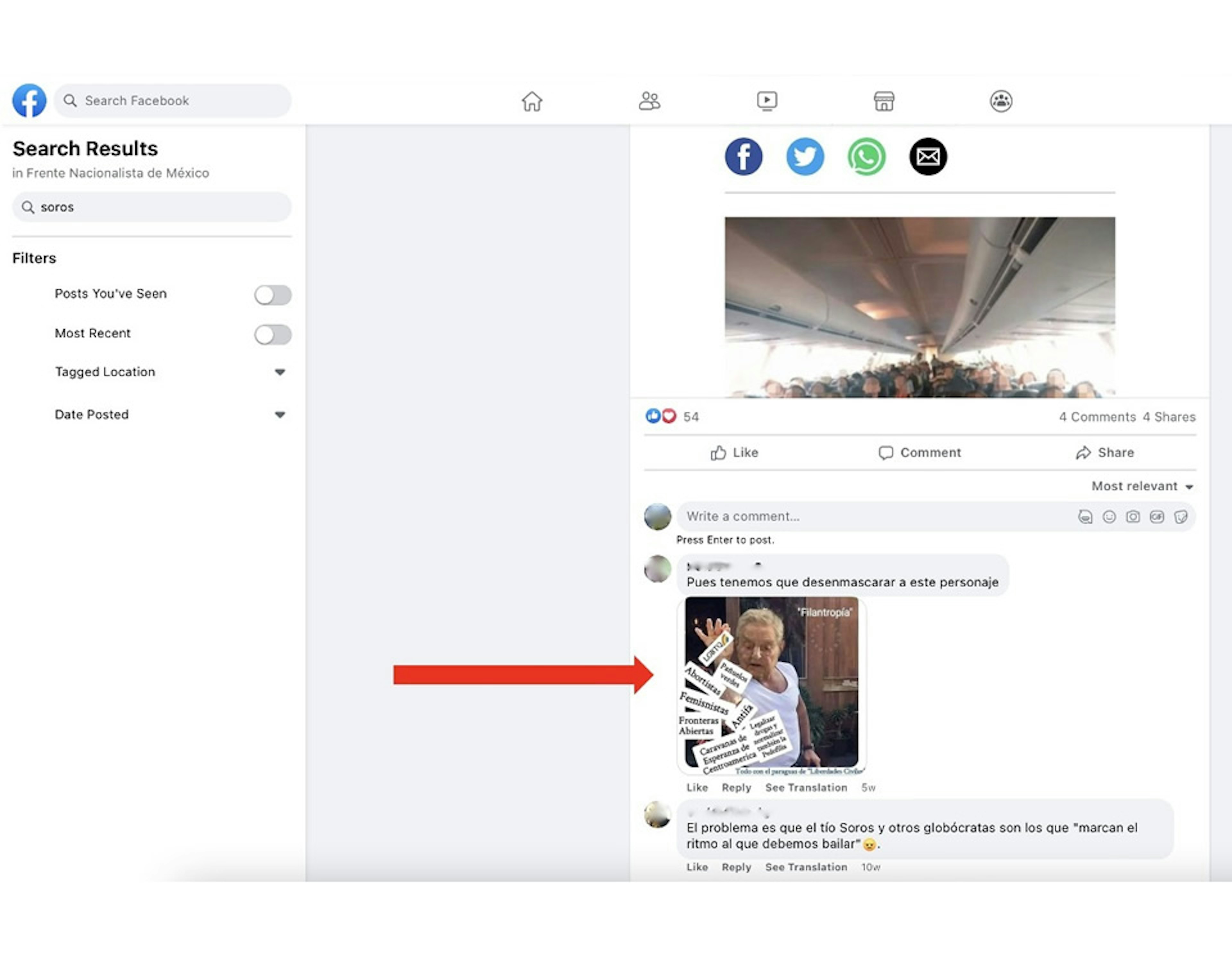Facebook is allowing Spanish-language misinformation and hate speech to stir up resentment toward migrants passing through Mexican communities on their way to the U.S., making their journey even more perilous, according to a new Tech Transparency (TTP) investigation.
TTP identified two Facebook groups—with the same moderator—generating a steady stream of content targeting migrants in Mexico. The moderator has spread baseless rumors that Venezuela is sending criminals into Mexico, suggested without evidence that migrants are stealing pensions from Mexican citizens, and referred to migrants as “garbage” and “invaders.”
TTP found posts in other Mexican groups spreading memes that falsely blame the billionaire philanthropist George Soros for organizing migrant caravans from Central America and making unsupported claims that Haitians are bringing drugs and lewd behavior into Mexico.
Some of these posts appear to violate Facebook parent company Meta’s policies on hate speech. They also threaten to spark real-world violence against migrants, who are already subject to dangerous conditions in Mexico.
This is not just a hypothetical concern. In 2018, social media-fueled misinformation targeted a migrant caravan headed to Tijuana, Mexico, alleging that the migrants were hostile to Mexican citizens and police. The campaign culminated in a violent confrontation between residents and caravan members in Tijuana.
TTP has done a deep examination of social media’s impact on migrants this year, documenting how Facebook and other tech platforms spread misinformation to migrants traveling north, give human smugglers creative ways to reach customers, and perpetuate online scams that promise migrants easy visas and employment.
Our latest research shows how misinformation can also seek to inflame local communities along the key migration routes—and create an atmosphere of suspicion and hostility for vulnerable populations passing through Mexico.
‘Violent criminals’
TTP found that a Facebook user who served as a moderator of two groups—“NO MIGRANTES ILEGALES EN MÉXICO” (“NO ILLEGAL MIGRANTS IN MEXICO”) and “Chiapanecos y Mexicanos contra la Invasión de México” (Chiapans and Mexicans against the Invasion of Mexico)— has pumped out a substantial amount of Spanish-language misinformation about migrants.
For example, the moderator claimed in a Sept. 29 post that the government of Venezuelan President Nicolas Maduro is sending criminals across Mexico to the U.S. The post links to a Venezuelan article with the headline, “Régimen de Maduro vacía prisiones y envía a criminales violentos a la frontera de EEUU” (“Maduro regime empties prisons and sends violent criminals to the U.S. border”). But it’s based on a debunked story from Breitbart, the far-right U.S. news site, which alleges that a Department of Homeland Security report instructed U.S. border patrol agents to stay vigilant for recently released Venezuelan inmates. PolitiFact, the fact-checking nonprofit, found no evidence to support Breitbart’s claim.
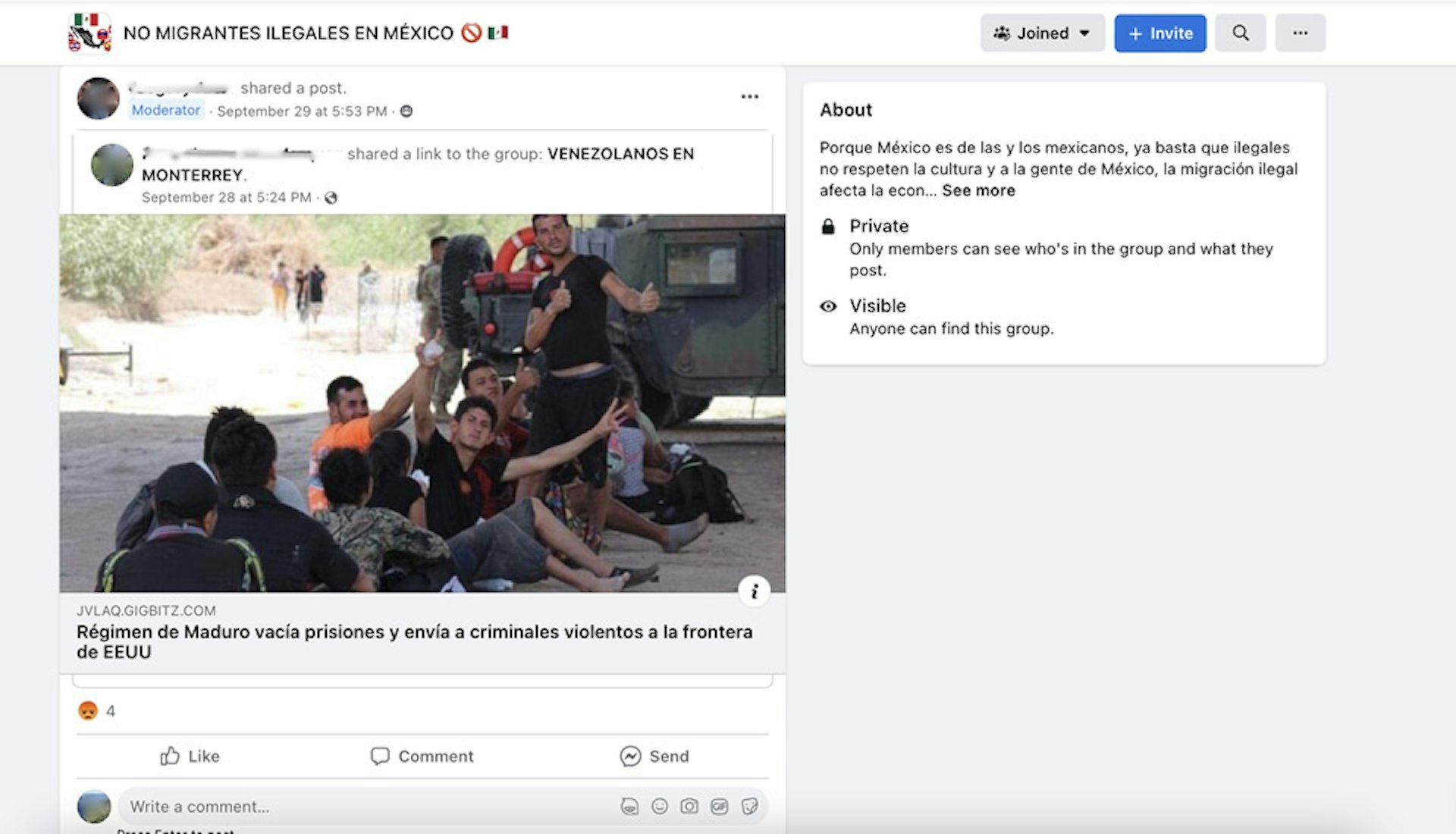
On Sept. 26, the moderator appeared to inflate the number of migrants crossing the treacherous Darien Gap from Colombia to Panama. The post claimed that 100,000 Venezuelan migrants were crossing the Darien Gap “right now.” But that doesn’t align with official statistics about the number of people crossing the gap. The government of Panama has said 151,582 migrants crossed the Darien Gap between January and September 2022. It’s unlikely that two-thirds of that number made the crossing all at one time.
(Human Rights Watch said more than 107,000 Venezuelan migrants have crossed the Darien Gap over the course of a nine-month period from January to September 2022.)
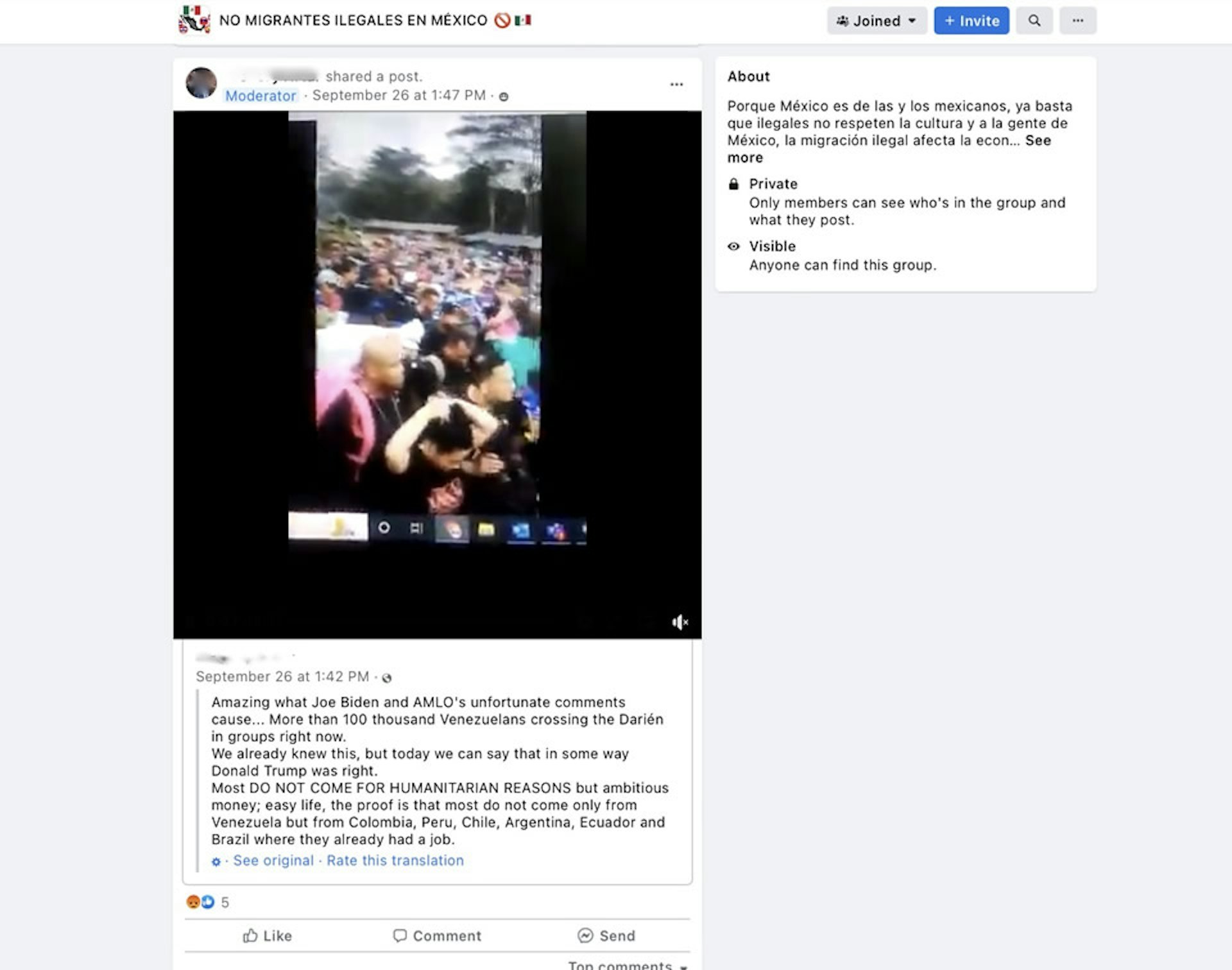
The moderator also claimed, without evidence, that migrants—which he called “foreign invaders”—were collecting pensions meant for Mexican seniors. One commenter on the post called the migrants “parasites.”
Facebook says it is committed to fighting false news on its platform, but it’s unclear if it would consider the above examples as violations worthy of removal. According to Facebook policy, the company takes down misinformation that is “likely to directly contribute to a risk of imminent violence or physical harm to people.” But there is no explanation of how Facebook determines this risk.
‘Invasion’ rhetoric
As part of a survey conducted earlier this year, TTP asked over 200 migrants how they felt about attitudes toward migrants in Mexico and the United States.
A number of migrants told TTP that they thought receiving communities along their journey to the U.S. viewed them negatively. One migrant from Nicaragua said residents think migrants are “not good people.” Others said migrants are viewed as thieves, criminals or gang members.
TTP found that posts on Facebook perpetuate and reinforce these negative views, at times veering into hate speech prohibited by the platform. Facebook parent company Meta defines hate speech as “direct attacks against people – rather than concepts or institutions – on the basis of what we call protected characteristics.” According to the company, migrants, immigrants, and asylum seekers fall into this protected category. In theory, Facebook prohibits “dehumanizing speech,” “statements of inferiority,” and “expressions of contempt” against them.
The moderator of the two Facebook groups identified by TTP frequently uses language about migrants that appears to violate Facebook policy. He has called migrants deported by the U.S. to Mexico “garbage” and “invaders” as well as “lazy” and “criminals,” and condemned the “invasion” of Peru by migrants.
After the moderator shared a local news story about how a caravan would soon leave the Mexican city of Tapachula, on the border with Guatemala, one group member commented that migrants are “dirty criminals,” “murderous rats” and “drug addicts.” Another member called migrants “Invasores y delincuentes” (Invaders and delinquents).
“NOS SIGUEN INVADIENDO POR MILES” (THEY KEEP INVADING US BY THE THOUSANDS) read another post in the group.
The “invasion” rhetoric mirrors language used by Donald Trump, other U.S. Republicans, and far-right politicians in Europe to describe immigrants.
In one case, TTP found a member of the NO MIGRANTES group recruiting volunteers in the central Mexican city of San Luis Potosí to join a group that will “combat the migrant invasion.” One user commenting on the post wrote that “we must do what the federal government won’t do,” without elaborating.
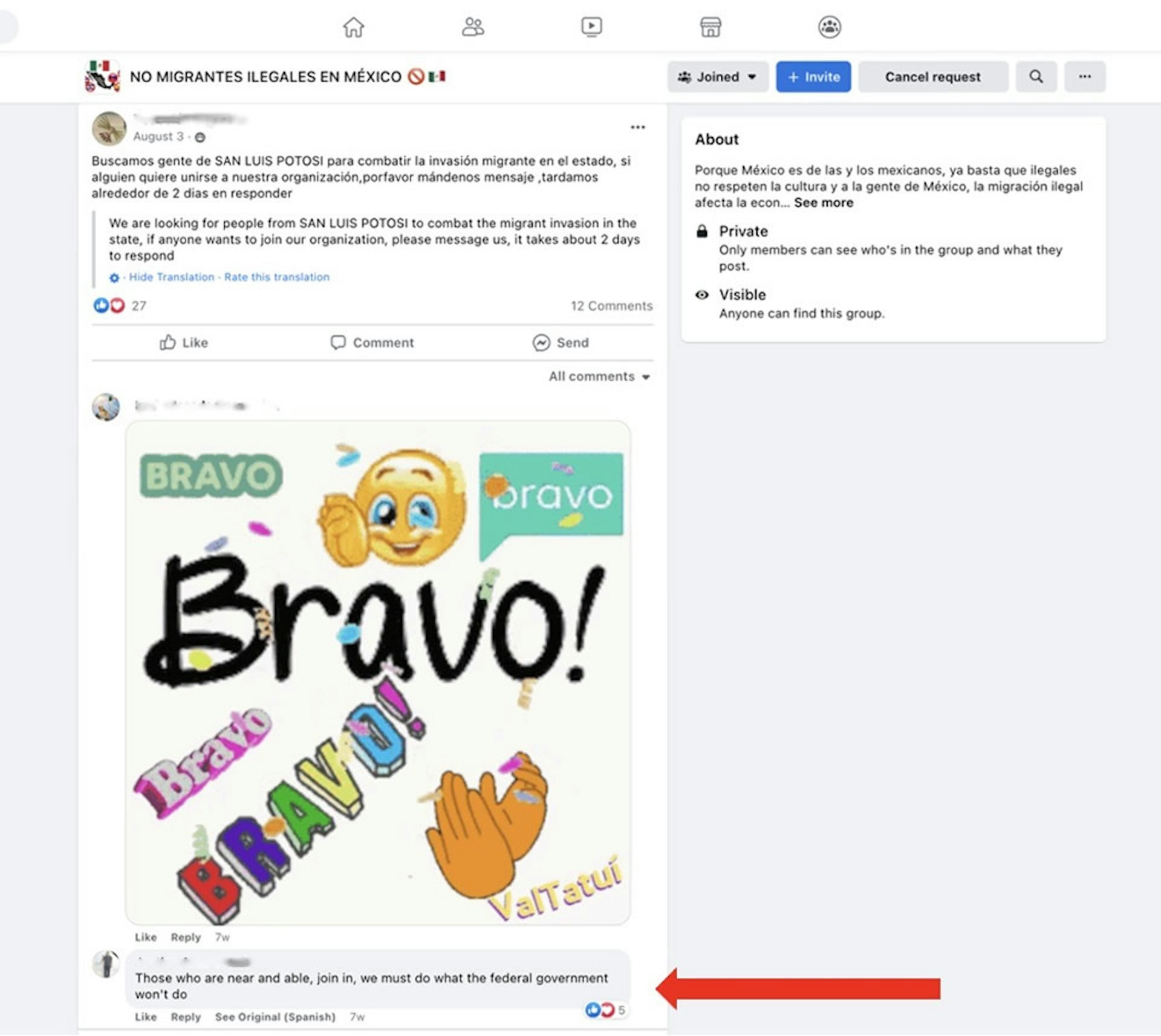
Haitians and Congolese
Some of the Spanish-language content identified by TTP targeted specific groups of migrants, including Haitians and Congolese.
One member of the NO MIGRANTES group, who shared an article about an alleged affair between a married Mexican woman and a male Haitian migrant, wrote, “They are insatiable, they come for our country, now for our women, then they will come for our homes.”
In other Spanish-language groups, people have posted videos claiming, without evidence, that Caribbean tour buses are bringing Haitian migrants and drugs into Mexico and that Haitian migrants are having sex in Mexican parks near children.
In the Chiapanecos y Mexicanos group, the moderator posted a meme about the presence of Congolese migrants in Tapachula, prompting another member to comment, “God protect us from those people because they do not know mercy.”
TTP also found conspiracy theories woven into the commentary in anti-migrant Facebook groups in Mexico.
In a Sept. 22 video posted to the Facebook page of a far-right group called Frente Nacionalista de México (Nationalist Front of Mexico), the speaker suggests that shadowy forces are behind the movement of migrants into Mexico. “These caravans and waves of migrants are sponsored by someone,” he says. “There are interests behind those mobilizing migrants to come to our country under the false promise that the U.S. will open its doors to them.”
While the speaker doesn’t name these “interests,” other members of the group circulate memes that blame the billionaire philanthropist George Soros for organizing migrant caravans from Central America. (This claim has been repeatedly debunked.) Soros, a Holocaust survivor, has been targeted by multiple, baseless conspiracy theories online that have been called a “gateway to antisemitism.”
Facebook has had a well-documented problem with misinformation that confuses and endangers migrants on their way to the U.S. southern border. TTP’s research shows that the platform is also pitting Mexican communities against migrants as they make their way north. This heightens the dangers migrants face on an already uncertain and hazardous journey.
